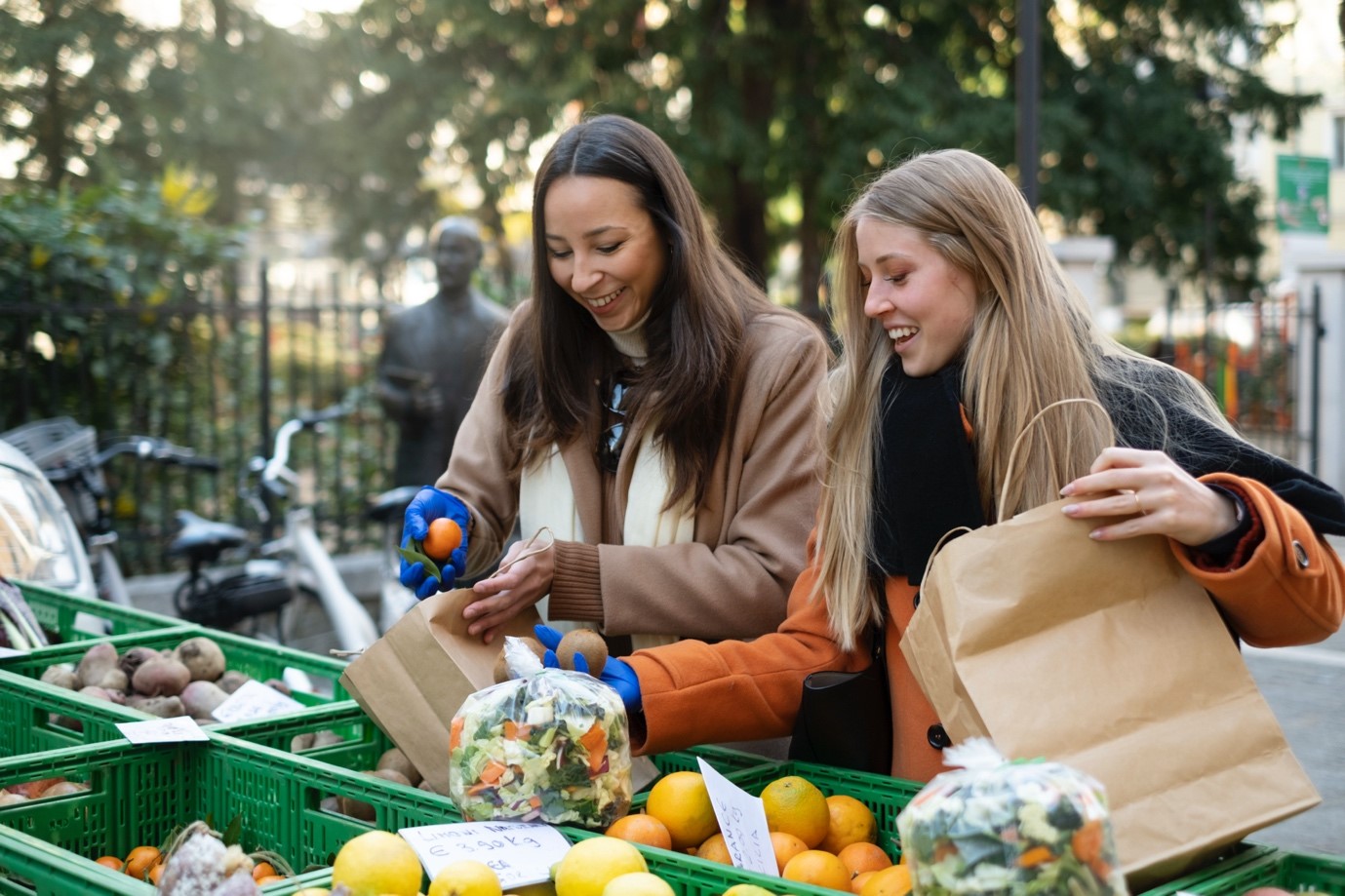
22 Oct Sustainable Consumption Tips: Small Changes, Big Impact
Small Changes, Big Impact: Sustainable Consumption Tips
So, you want to live more sustainably? That’s something the world definitely needs when it comes to our everyday choices. But let’s be honest, even with the best intentions, research shows that motivation often battles against widespread, ‘normalised’ unsustainable habits. On top of that, the sheer amount of advice out there can feel overwhelming — where do you even start?
This mini-guide is here to help. Below are a few simple, science-backed sustainable consumption tips to help you make a meaningful difference without turning your life upside down.
Rejig the Shopping List
A recent study found that one of the most common everyday behaviours harming the environment is linked to our grocery shopping (Ganglmair-Wooliscroft & Wooliscroft, 2025). This includes buying out-of-season fruits and vegetables or always reaching for the cheapest meat and eggs.
Try eating more seasonally: favour foods that are naturally ripe and ready to harvest during the time of year you’re shopping. For example, enjoy strawberries and watermelon in summer, but swap to pumpkins and pears in autumn. Seasonal foods are more likely to be locally sourced, meaning they travel shorter distances and have a lower carbon footprint (Vargas et al., 2021). Plus, they taste fresher and often cost less — a win for both your taste buds and your wallet.
For more ideas on making your shopping list greener, check out the National Trust’s practical sustainability guides: https://www.nationaltrust.org.uk/.
Ditch the Disposables
Another everyday habit that takes a toll on the planet is our reliance on single-use plastics. Even in eco-conscious regions like New Zealand, takeaway coffee cups remain a major source of waste (Ganglmair-Wooliscroft & Wooliscroft, 2025).
The good news? Many cafés now reward sustainable choices by offering discounts to customers who bring their own reusable cup. Investing in your own cup is a simple way to save both money and the planet.
Beyond coffee cups, single-use waste sneaks into almost every part of daily life — plastic cutlery, takeaway boxes, cling film, and wet wipes. These items may seem harmless but quickly pile up in landfill. A small ‘reuse kit’ with a tote bag, metal straw, and reusable cutlery can prevent countless disposables over time, without adding much effort.
Mind over Matter (and Stuff)
Before buying that ‘must-have’ item, try giving yourself a cool-off period — a pause can go a long way. During that time, consider checking second-hand or thrift stores first; you’ll often find what you need at a fraction of the cost and with a smaller environmental footprint.
Ask yourself: Do I really need this? Will I use it regularly? Could I borrow or share it instead? Research shows that taking even a few minutes to reflect can significantly reduce impulse purchases and promote more sustainable consumption habits.
Another tip? Focus on quality over quantity — investing in durable, ethically made items tends to be better for both your wallet and the planet long-term. Small pauses, smart choices, and second-hand finds add up to a more conscious, low-waste lifestyle.
Takeaway Message
These sustainable consumption tips are just the tip of the iceberg when it comes to greener living. With a few mindful changes, you can shop smarter, waste less, and make a real difference. Start small, stay consistent, and watch your choices add up to a lasting positive impact.
We Support Policy Clarity with Evidence-Based Insight
At SOStainability, we specialize in guiding businesses, communities, and organizations to successfully integrate sustainability into their strategies. We offer consultations tailored to your unique needs, helping you drive positive change that benefits both your bottom line and the world around you.
Whether you’re looking for sustainability assessments, ethical marketing strategies, or tailored training, our team is here to support your journey.
For consultations or business inquiries, please reach out to us at hello@sostainability.co.uk


No Comments